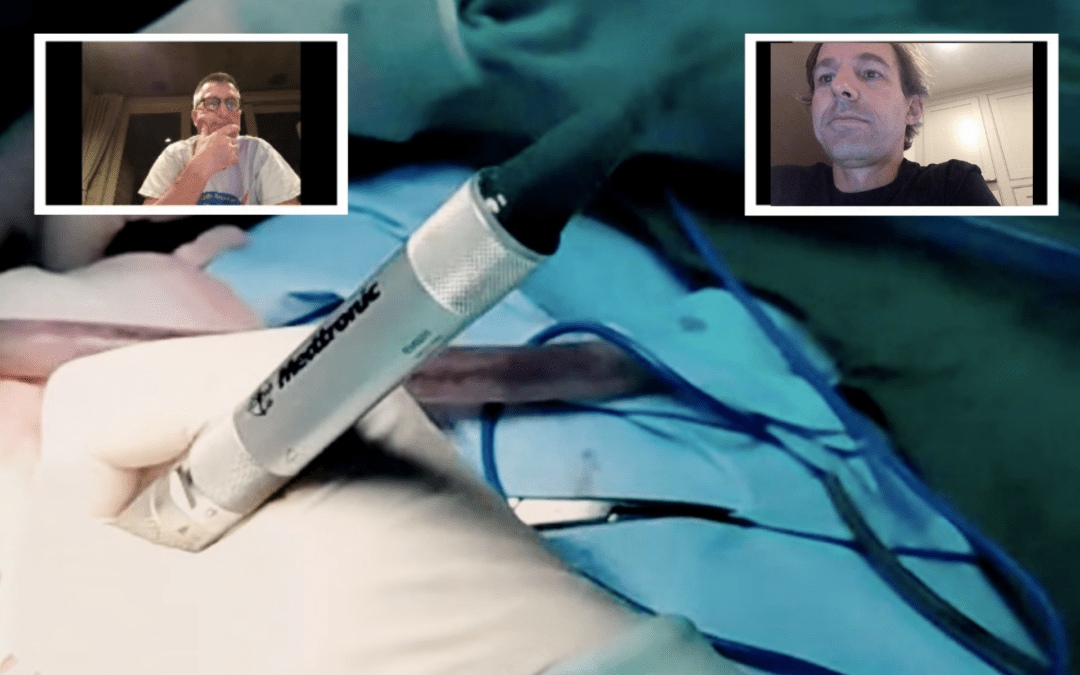Dr. Can, Chief of Pediatric Neurosurgery at Children’s #2 Hospital in Ho Chi Minh City, Vietnam, recently completed five complicated Craniofacial reconstructive surgeries through Ohana One’s Surgical Sight Smart Glass Program– becoming one of the only surgeons to carry out these procedures in southern Vietnam.
Craniofacial reconstructive surgeries are complex procedures that reshape and repair abnormalities in the face and skull of children and infants. Congenital disabilities and genetic disorders often cause these abnormalities. Facial irregularities occur ten times more often in Vietnam than in neighboring countries(facingtheworld.net), and access to restorative care is severely limited. Corrective surgery is hugely beneficial and can change the lives of the patients who receive them, alleviating pain, difficulty breathing, neurological issues, and psychological trauma from societal stigma.
Over the last seven years, Dr. Dang Do Thanh Can trained extensively with Dr. James Johnston from Children’s Hospital in Birmingham, Alabama, mastering cutting-edge neurosurgical techniques leading to his ability to provide elevated care to patients in his country.
Like most inter-continental surgeons, Dr. Can and Dr. Johnston travel out of the country once or twice a year to collaborate. They also utilize Help Lightning, an augmented reality software, for neuroendoscopic surgery training. They learned about Ohana One’s Surgical Sight Program through a colleague and were interested in using Vuzix smart glass technology to streamline their training.
In this program, surgical mentor/mentee teams focus on one procedure to master; Dr. Can was eager to bring Craniofacial reconstruction to Ho Chi Minh City and chose this procedure to learn. Because Craniofacial reconstruction requires knowledge of neurosurgery and plastic surgery, Dr. Can trains with Dr. Johnston and Dr. John Grant, a plastic and Craniofacial surgeon at Children’s Hospital in Alabama. These three surgeons connect via Help Lightning, while Dr. Can operates with Vuzix smart glass technology, and they collaborate as if they were in the same room.
Recently, this team of surgeons completed a fronto-orbital advancement for a child with Crouzon Syndrome. This condition develops in youth, severely affecting the forehead, nose, mid-facial regions, jaw bone, and teeth. Children with Crouzon Syndrome experience many difficulties, and in some instances, the disorder can become life-threatening (https://rarediseases.org/rare-diseases/crouzon-syndrome/). Because of their collaboration, this young child received a life-changing procedure, significantly reducing their risk of experiencing neurological damage.
Dr. Johnston shares that Dr. Can is “already such a good, technically trained neurosurgeon” and is “very comfortable with many of the techniques”. Dr. Can’s knowledge of surgical techniques lead the team to focus on surgical planning, teaching the principles, patient selection, and inter-operative decision making. Dr. Johnston highlighted the impact of the work he and his partners are accomplishing, “He [Dr. Can] should get a lot of credit for what he has done. Surgical repair not only improves their appearance but also has a significant impact on their brain development and preserving vision. It’s a very important service that he’s now providing to Vietnam.”
The continued education afforded through Ohana One created the opportunity for these surgeons to utilize their skills and time to the fullest and bring crucial care to children in Vietnam, with much quicker results than the traditional travel method of surgical training.


Recent Comments